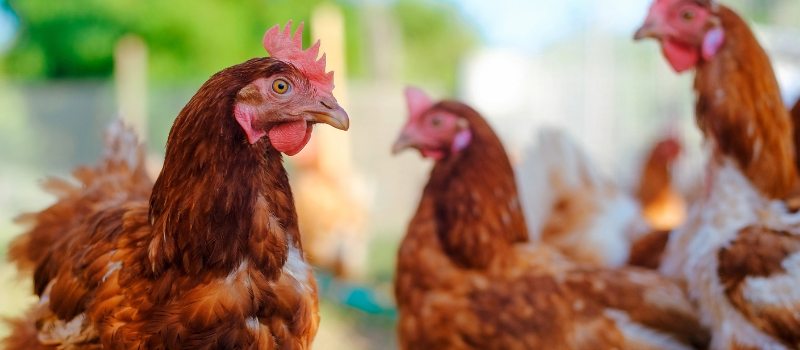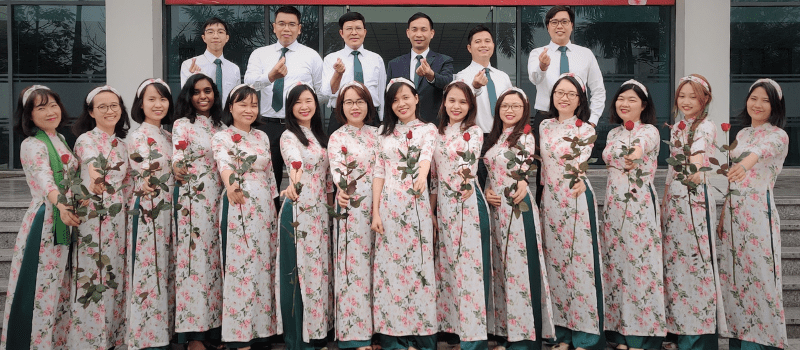#VETSVolunteerVoices brings you stories of our passionate VETS program volunteers from the field. Meet Dayo Olaniyan, a Gender Advisor who spent three months in Ghana (May–August 2025) with our local partner, GAPNET, strengthening gender equity in livestock production and empowering rural communities.
Why I Chose This Path
I’ve always been passionate about sustainable development and gender equality. So, when I discovered the VETS program’s focus on livestock livelihoods in Ghana, I knew it was a space where I could bring my background and interests together.
Rural women in Ghana play essential roles in animal care, yet often face barriers to resources and decision-making. I wanted to see how intentional gender work could help close those gaps—creating opportunities not only for women, but for men, children, and youth as well.
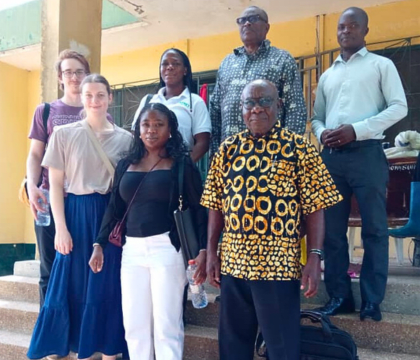 PHOTO: Dayo (front, center) and her VETS colleagues meet with Directors of Agriculture and Assembly in Suhum.
PHOTO: Dayo (front, center) and her VETS colleagues meet with Directors of Agriculture and Assembly in Suhum.
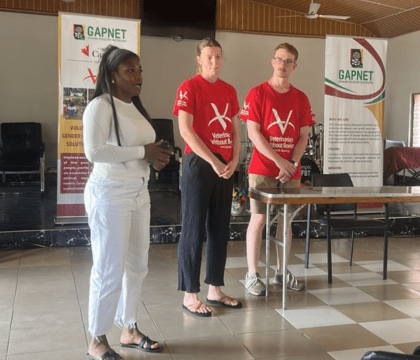 PHOTO: Dayo (left) and her VETS volunteer colleagues deliver a joint gender and animal health training.
PHOTO: Dayo (left) and her VETS volunteer colleagues deliver a joint gender and animal health training.
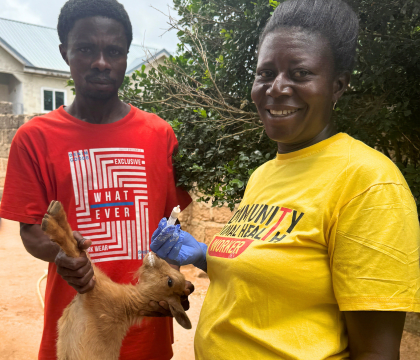 PHOTO: Salome Opare, farmer and VETS-trained Community Animal Health Worker from Noka community.
PHOTO: Salome Opare, farmer and VETS-trained Community Animal Health Worker from Noka community.
Strengthening Gender Integration at GAPNET
During my placement with VWB's local partner, the Ghana Poultry Network (GAPNET), my main responsibility was to conduct a gender analysis of their operations and update their gender action plan. GAPNET already had a framework for gender integration, but there were gaps in implementation, particularly after a key partnership ended.
Through the analysis, I recommended practical, internally driven strategies GAPNET could sustain on their own. My goal was to leave behind a roadmap with measurable outcomes—something they could actually follow, not just file away.
I also delivered gender equity training to staff and coached a colleague on gender-transformative approaches. These sessions sparked important conversations, though I quickly realized that change takes time. Expectations varied, and not everyone left feeling their needs had been fully met. Still, the discussions laid groundwork for future projects and highlighted the need for ongoing—not one-off—support.
Bringing Gender Equity to Communities
The most memorable part of my placement was working directly with communities. Over three months, I reached more than 230 people with gender-focused livestock training. Together, we explored:
- Shared household decision-making in livestock management
- The importance of involving youth in animal care to prepare them for the future
- Gender roles in animal production, from daily chores to leadership
- Building inclusive associations where women and men could work side by side
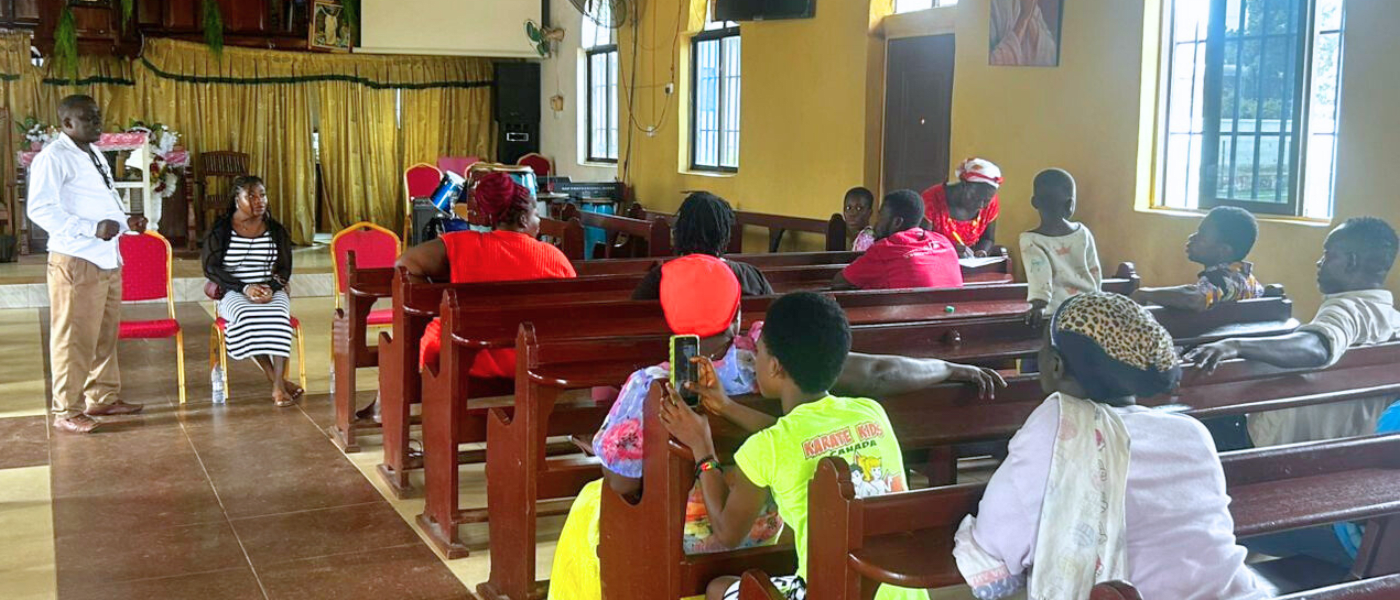 PHOTO: Dayo (2nd from the left, striped dress) leads a gender training session with women and men from the Darban community.
PHOTO: Dayo (2nd from the left, striped dress) leads a gender training session with women and men from the Darban community.
In Ntukum community, participants were eager to form livestock groups that included both men and women. I also noticed something I hadn’t expected—men speaking up in support of women’s participation. That shift in perspective, even if small, was powerful to witness.
For me, the most rewarding moments came when participants connected these ideas to their own lives. I saw men realizing the benefits of involving their wives in decision-making, parents recognizing the value of teaching their children about livestock, and women feeling more confident to speak up.
A Story of Change: Salome’s Journey
One of the most inspiring people I met was Salome Opare from Noka community.
Salome started as a kenkey seller—a traditional fermented maize dish that is a staple food in Ghana—with only one goat. She relied on traditional remedies for poultry diseases like Newcastle, and her income was limited. But through the VETS program, she was selected for Community Animal Health Worker (CAHW) training in Suhum.
Over two weeks, she learned modern animal health practices, proper use of veterinary medications, and recordkeeping. When she returned, she was equipped not only with new knowledge but with the confidence and tools to serve her community.
Her progress has been remarkable. Today, Salome owns ten goats, has healthier poultry, and earns income by providing veterinary services. She has also trained five other community members, multiplying the impact of her skills.
Most importantly, she has earned respect. Salome herself shared how proud she feels of what she has achieved—both for her animals and her family.
Yet, her journey also revealed one of the persistent challenges for women working in animal health: payment for services. Many community members assume CAHWs are working on behalf of NGOs or government, so they expect treatments to be free. This mindset makes it difficult for CAHWs to sustain their work.
That’s why community education is so important—people need to understand the value of professional animal health services and why clear fee structures matter. In my gender action plan, I included community sensitization activities and business skills training for CAHWs. Sustainable services require fair compensation, and when communities embrace that, more women will feel encouraged to get involved and find safe spaces in this work.
Lessons I’ll Carry Forward
This placement reinforced for me that gender equality isn’t just about fairness—it’s about effectiveness and sustainability. When women have equal access to livestock training and resources, whole families and communities benefit through better animal health, increased productivity, and stronger livelihoods.
And it’s not just about women. Integrating girls, boys, and youth, especially in rural areas, is critical for long-term change. These conversations must include every member of the household if they are going to transform how livestock is managed and how decisions are made.
I've also learned that meaningful change—whether in organizations or communities—requires patience. It’s built through trust, relationships, and consistency. Technical expertise matters, but without connection and cultural understanding, it won’t take root. The communities I worked with have incredible knowledge and resilience.
My role was simply to facilitate discussions, build connections, and provide tools they could use in their own way.
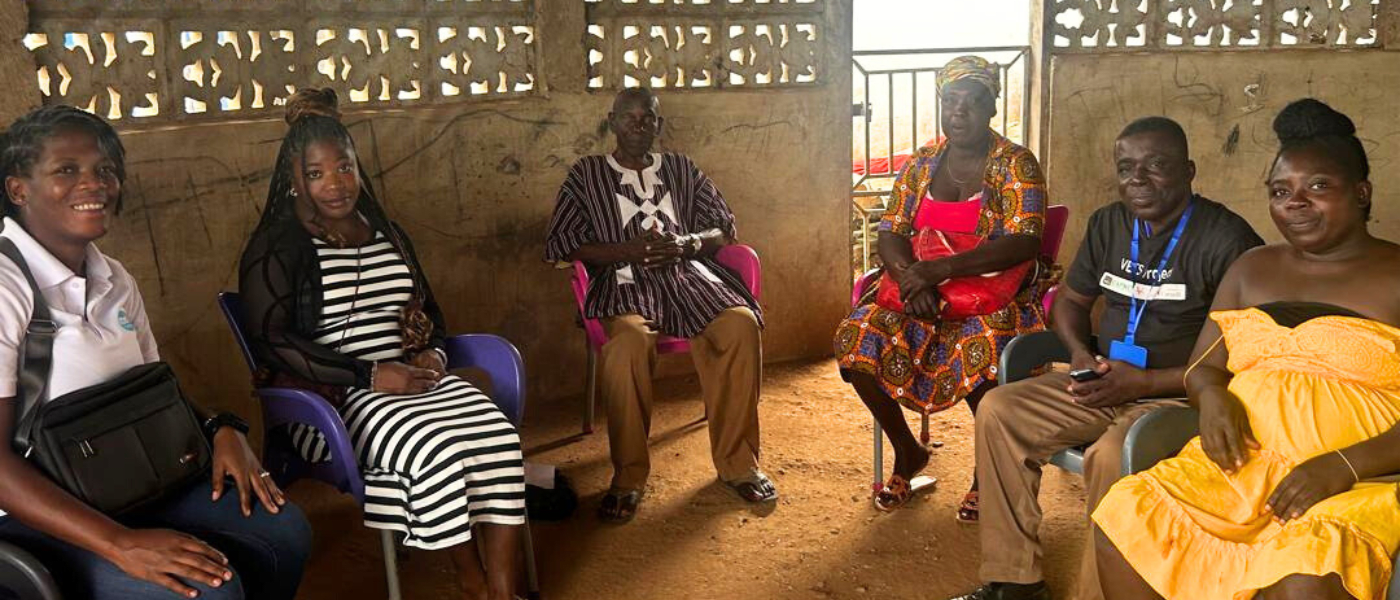 PHOTO: Dayo (2nd from the left, striped dress) participates in an introductory meeting with leaders and residents at the chief’s place in Nsawam Nooka village.
PHOTO: Dayo (2nd from the left, striped dress) participates in an introductory meeting with leaders and residents at the chief’s place in Nsawam Nooka village.
Looking Ahead
As I return home, I carry with me a deeper understanding of the link between gender equality and livestock livelihoods. And I carry the conviction that I want to continue contributing to international development.
When I think of people like Salome—women who are rewriting what’s possible for themselves and their communities—I know the work is worth it.
VETS is an 8-year initiative (2020-2028) to improve the economic and social well-being of marginalized people, particularly women and girls, in 6 countries across Africa and Asia. In collaboration with local partners, the program is implemented through 190 Canadian volunteers on international assignment and is generously funded by Global Affairs Canada. Learn more.

